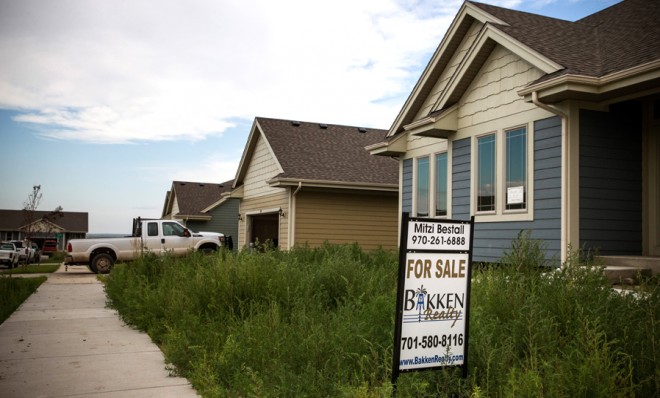Should the government be helping you buy a home?
President Obama wants to reduce the government's role in the housing market. But that might displease voters.

A free daily email with the biggest news stories of the day – and the best features from TheWeek.com
You are now subscribed
Your newsletter sign-up was successful
President Obama this week called for sweeping reforms in the nation's mortgage-financing market, in what the White House billed as a major speech on the future of the housing sector.
One of the loftier goals he presented was a shift from federal-backed mortgages to private financing, with the government still maintaining certain responsibilities that will prevent another financial crisis and help Americans buy homes.
"I believe that while our housing system must have a limited government role, private lending should be the backbone of the housing market, including community-based lenders who view their borrowers not as a number, but as a neighbor," Obama said.
The Week
Escape your echo chamber. Get the facts behind the news, plus analysis from multiple perspectives.

Sign up for The Week's Free Newsletters
From our morning news briefing to a weekly Good News Newsletter, get the best of The Week delivered directly to your inbox.
From our morning news briefing to a weekly Good News Newsletter, get the best of The Week delivered directly to your inbox.
The speech was set against the backdrop of a recovering housing market, where real estate values are climbing at their fastest rate since 2006. The government has played a major role in that recovery through Fannie Mae and Freddie Mac, the mortgage-financing behemoths that have been under the government's control since the financial crisis. By backing nearly 90 percent of the country's loans — particularly at a time when private banks have been reluctant to lend to homebuyers — Fannie and Freddie have kept mortgage interest rates low and homes affordable.
But the government's guarantee means taxpayers are liable if the housing market collapses once again. Here's John W. Schoen at CNBC:
First, everyone wants to avoid a repeat of the Fannie Freddie bailout. Some — including President Obama — argue that the risk of that happening remains as long as Fannie and Freddie are writing new loans with taxpayers on the hook for any losses.
Though they’re profitable, Fannie and Freddie still cost the government billions more in what amounts to a subsidy for covering the risk of future defaults. It’s not unlike letting an insurance company collect premiums on a policy that it then hands over to the government when the policyholder files a claim for losses. [CNBC]
And their outsized role in the housing market has caused distortions. Binyamin Appelbaum at The New York Times:
There is growing concern, however, that the government’s risk aversion and the absence of private competition are suppressing the availability of loans. The average credit score for borrowers whose loans were bought by Freddie Mac rose to 756 in 2012 from 720 in 2006, according to its securities filings. [The New York Times]
Despite a growing consensus among lawmakers that the government should be less involved in the housing market, there is one group who might prefer the status quo: Voters. As Appelbaum writes, "The terms of the government’s involvement in housing finance have remained substantially unchanged because the benefits are wildly popular with powerful interest groups, including banks, builders, real estate agents — and, of course, homeowners."
A free daily email with the biggest news stories of the day – and the best features from TheWeek.com
That's why Obama maintains that any reform preserve the prevalence of the 30-year fixed-rate loan, which is what most Americans prefer. The Democratic-led Senate is considering a bill that would wind down Freddie and Fannie while maintaining a fairly robust federal presence in the housing market. The GOP-led House, meanwhile, is mulling a bill that would drastically reduce the government's role in housing matters.
But both reform packages would invariably lead to higher interest rates on home loans — a sure recipe for angering voters, who could prove to be the greatest obstacle to reform.
Perhaps the bigger problem, says Matt Yglesias at Slate, is the very idea of homeownership as a core American value:
[I]t's a bit strange to come out of a massive crisis with its origins in the housing sector and the cult of homeownership and come out of it with a reform agenda that very much doubles down on that very same cult. [Slate]
Carmel Lobello is the business editor at TheWeek.com. Previously, she was an editor at DeathandTaxesMag.com.
-
 How the FCC’s ‘equal time’ rule works
How the FCC’s ‘equal time’ rule worksIn the Spotlight The law is at the heart of the Colbert-CBS conflict
-
 What is the endgame in the DHS shutdown?
What is the endgame in the DHS shutdown?Today’s Big Question Democrats want to rein in ICE’s immigration crackdown
-
 ‘Poor time management isn’t just an inconvenience’
‘Poor time management isn’t just an inconvenience’Instant Opinion Opinion, comment and editorials of the day